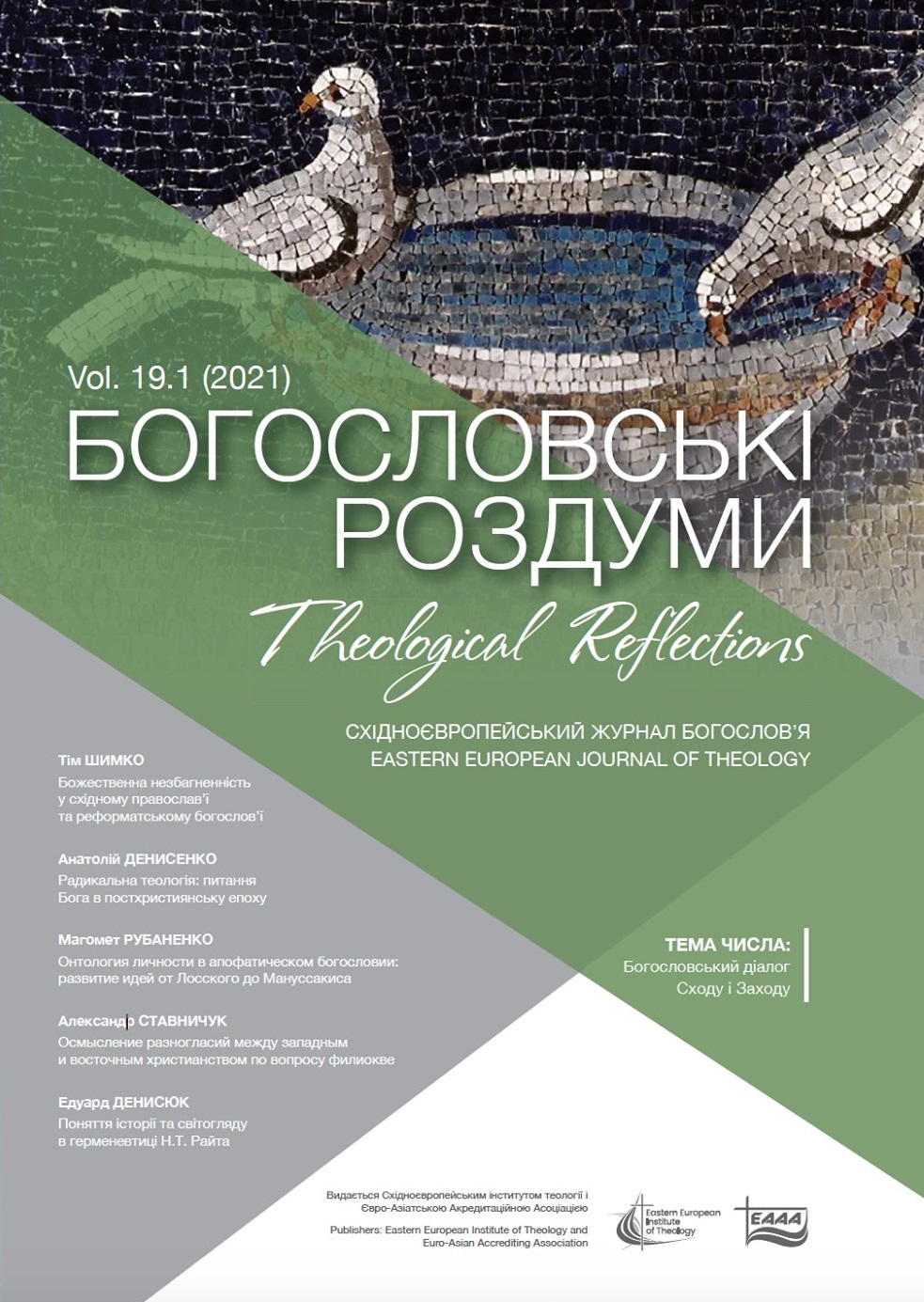Socio-Political Ethics of Reinhold Niebuhr’s Christian Realism
DOI:
https://doi.org/10.29357/2521-179X.2021.v19.1.23Keywords:
Christian realism, Reinhold Niebuhr, neo-orthodoxy, socio-political ethics, public theology.Abstract
Brynov, Vitaliy. “Socio-political Ethics of Reinhold Niebuhr’s Christian Realism.” Thesis for the degree of candidate of philosophy – 09.00.14 (041 – Theology). The thesis is devoted to the complex analysis of social and political ethics in the Christian
realism of Reinhold Niebuhr. Niebuhr’s Christian realism is considered a return to Christian evangelical values in the socio-political space and a demonstration of Christianity’s ability to answer the complex questions of the contemporary world. The main characteristics of Christian realism are practicality and pragmatism, orientation on biblical ethics, as well as honesty and openness in recognizing human limitations. In the Ukrainian academic space, there are no studies of the phenomenon of Christian realism, no studies of the works of the brothers Reinhold Niebuhr and Helmut Richard Niebuhr, and there are no works of these authors translated into Ukrainian. Therefore, the research aims to overcome this drawback, and it focuses on Reinhold Niebuhr’s activities, social and political concepts, and the practical usage of the Christian realism ideas in Ukrainian society in the early XXI century.
References
- Without a list of references
Additional Files
Published
How to Cite
Issue
Section
License
Copyright (c) 2021 Віталій Бринов

This work is licensed under a Creative Commons Attribution-NonCommercial 4.0 International License.
All articles published in the Journal are distributed under a Creative Commons Attribution-NonCommercial 4.0 International License
By submitting an article for publication in Theological Reflections: Eastern European Journal of Theology the author grants the editors the right to publish the article and distribute it in electronic and print form.
The author reserves all copyrights and the right to use the materials of the article in whole or in part for educational purposes, to write his own dissertations, to prepare abstracts, conference reports, oral presentations, etc., as well as post electronic copies of articles (including the final electronic version downloaded from the journal’s official website) on non-commercial web-resources without the consent of the editorial board and founders.



